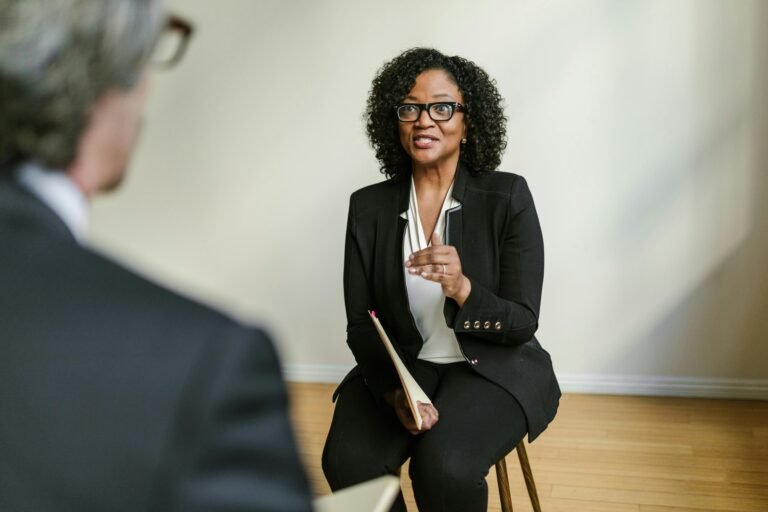If you’re applying for a new role in a school—whether you’re a teacher, administrator, or support staff—one thing is almost guaranteed: employers will ask for references. And not just written ones. Many hiring teams, especially in education, place real value on verbal job references—quick phone calls where someone who knows you well vouches for your professional abilities, character, and experience.
A thoughtful, enthusiastic verbal reference can set you apart from other candidates. It adds a layer of trust and authenticity to your application that even the best-written resume can’t always convey. But here’s the challenge: asking someone to give that reference can feel awkward, intimidating, or even risky. What if they say no? What if they don’t remember enough about your work?
The good news is that with a respectful approach—and the right preparation—you can confidently ask for a verbal job reference and set your contacts up to speak on your behalf in a way that’s both accurate and glowing.
This guide walks you through every step of the process—from choosing the right person to writing the email—and includes a sample you can personalize.
What Is a Verbal Job Reference?
A verbal job reference is typically a phone conversation between your potential employer and someone who has worked closely with you in a professional capacity. It’s different from a written letter of recommendation in that it tends to be more spontaneous, conversational, and responsive to specific questions the hiring manager has.
Employers often ask for verbal references to:
- Confirm your past responsibilities
- Understand your working style
- Learn how you’ve contributed to a team or school community
- Hear how you handle challenges, deadlines, or relationships
- Gauge your overall professionalism and reliability
Because it’s unscripted, a verbal reference can feel more genuine and revealing. That’s why choosing the right person—and preparing them well—is essential.
Step 1: Choosing the Right Person
Not every professional connection will make a strong reference. The best verbal references come from people who can speak confidently, clearly, and positively about your skills and achievements in a work context—especially as they relate to the job you’re applying for.
Great candidates for verbal job references include:
- A current or former supervisor or school leader who observed your work firsthand
- A trusted colleague or team member you collaborated closely with
- A mentor, instructional coach, or teacher leader who helped you grow professionally
- A client or parent if your role involved regular communication or support
- A professional contact from your network—as long as they know your work well
Avoid choosing someone who:
- Has a personal or family relationship with you (they’ll likely be seen as biased)
- Hasn’t worked with you recently or directly
- Doesn’t know your current skill set or responsibilities
- Might feel uncomfortable or unqualified to speak on your behalf
- Has ever given you neutral or negative feedback
In short, choose someone who knows your work, believes in you, and can articulate why you’d be a great fit for the role you’re pursuing.
Step 2: Ask for Permission (Before You Share Their Contact Info)
This might seem obvious, but it’s often overlooked: never list someone as a reference without asking them first. Verbal references can catch people off guard, and if your contact isn’t prepared, they might unintentionally give vague or less-than-glowing feedback.
Asking for permission is not only courteous—it gives your contact time to reflect, review your experience, and prepare to highlight your strengths.
How to Ask
You can reach out in person, over the phone, or via email. In most cases—especially if you’re not in frequent contact—email is the best choice. It’s professional, gives the recipient time to consider, and lets you include relevant materials they can refer back to.
What to Include in Your Request
- The job title and organization you’re applying to
- A short reminder of how you worked together
- Why you’re asking them (what they can speak to about your experience)
- A brief summary of your qualifications or highlights
- A clear request for permission to list them as a verbal reference
- Your gratitude and understanding if they’re unable to help
Here’s how that looks in action:
Sample Email to Request a Verbal Job Reference
Subject: Reference Request for Upcoming Job Opportunity
Hi [Name],
I hope you’re doing well! I’m reaching out because I’m currently applying for a [Job Title] position at [School or Organization Name], and I was hoping you’d be willing to serve as one of my professional references.
We worked together at [School/District/Organization Name], and I truly appreciated the opportunity to collaborate with you—especially on [mention a project, team, or responsibility]. I think you could offer valuable insight into my [teaching/leadership/organizational/communication] skills and my approach to working with students and colleagues.
If you’re comfortable with it, the school may reach out to schedule a quick call for a verbal reference. I’ve attached my resume and a link to the job description so you can see how I’m presenting my qualifications and how the position aligns with my experience.
Please let me know if you’re open to this and feel free to share the best contact information to use. If you’re not available or don’t feel comfortable, I completely understand—I just truly appreciate your consideration.
Thanks so much,
[Your Name]
[Your Phone Number]
Step 3: Set Your Reference Up for Success
Once someone agrees to provide a reference, your job isn’t done. One of the most respectful and helpful things you can do is prepare them with the right materials so they feel confident and informed if they get a call.
Send them the following:
- A copy of your resume and, if available, your cover letter
- A link to the job description
- The name of the hiring manager or HR contact if you know it
- Any specific achievements or projects you’d like them to highlight
- A few tactful reminders of how you worked together
- Your sincere thanks
The more prepared your reference feels, the better they’ll be able to advocate for you. Consider saying something like:
“If it helps, feel free to mention how we collaborated on the literacy task force, or the way I organized the parent engagement initiative during back-to-school night. Those are both examples I think really match what this role is asking for.”
Common Questions About Verbal References
Will they really call my references?
Yes—especially in education. Schools and districts often prioritize personal insight over generic letters. A 10-minute phone call gives hiring teams a better understanding of your fit for the role and the school culture.
Should I remind my reference before they’re contacted?
If the hiring process is moving forward, it’s a great idea to send a quick heads-up:
“Just a quick note—[School Name] may reach out to you this week. Let me know if you’d like any additional info.”
What if someone says no?
Don’t take it personally. People say no for all kinds of reasons: timing, workload, or simply not feeling like the best fit. Thank them, move on, and ask someone else who’s a better match.
In Closing: Reference the Right Way
Asking for a verbal job reference is an important step in any hiring journey—but especially in education, where character, communication, and collaboration are just as valued as credentials.
Let’s recap the key steps to do it right:
- Choose someone who knows your work well and can speak positively.
- Ask for permission respectfully—don’t surprise anyone.
- Provide all the info they’ll need to speak confidently on your behalf.
- Thank them—and keep them informed throughout the process.
By being thoughtful and organized, you’ll make it easy for others to support you—and you’ll boost your chances of landing that next big opportunity. Good luck with your job application!
Related Posts
5 Tips for Answering Interview Questions You Don’t Know the Answer To
What to Say and What Not to Say About a Previous Employer
How to Conduct a Self-Assessment to Identify Your Strengths and Weaknesses
Why You Should Never Criticize a Former Employer During a Job Interview
How to Ace Your Next Interview by Recording Yourself









